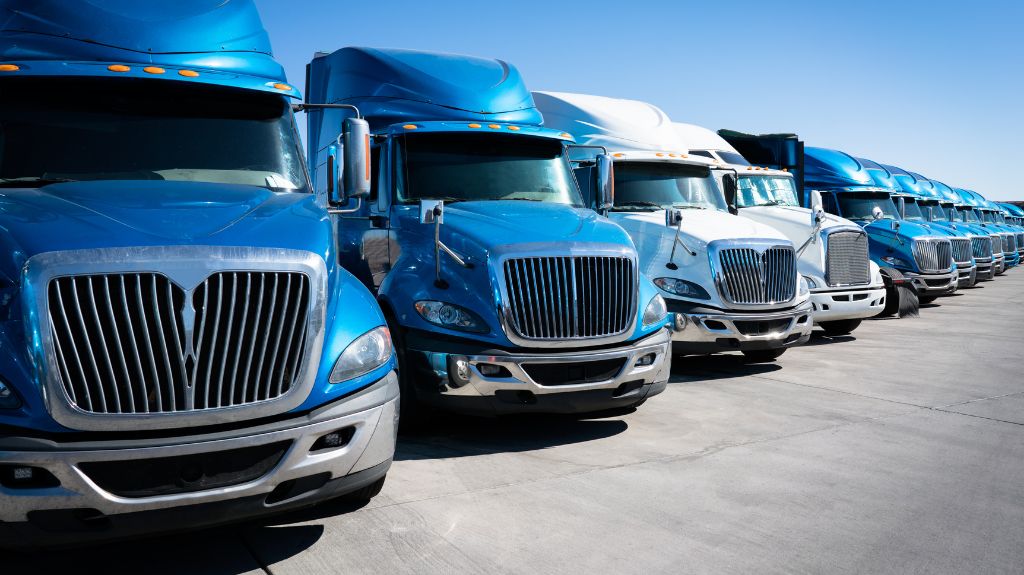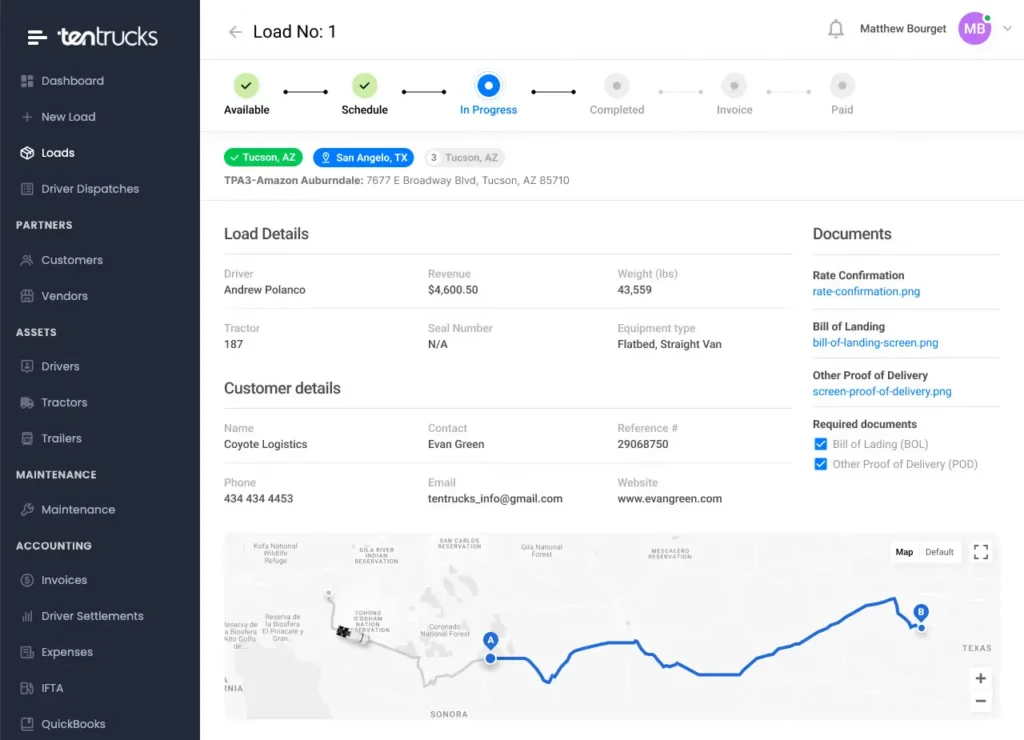How Does a Transportation Management System (TMS) Work?
Published:Apr 22, 2025
Updated:Jun 10, 2025
5 min. read
Are you looking for ways to make your trucking and freight company more efficient and more profitable? Technology can help you optimize operations, reduce costs, and improve profit margins when you have the right tools. A Transportation Management System (TMS) may prove to be the answer with a variety of benefits for you and your company. If you aren’t familiar with platforms like TenTrucks TMS, you may be asking — how does a Transportation Management System (TMS) work? We may be able to help.
What Does a TMS Do for Trucking Companies?
When you are looking for ways to make operations at your trucking company more efficient and effective, you may be considering a Transportation Management System — but it is important that you know how a TMS works and what it can do for your company. A general definition of a Transportation Management System is — a software platform that helps transportation businesses optimize and manage operations that include planning, execution, and management of cargo.

In general terms, the functions and capabilities of a Transportation Management System can be separated into three primary categories — Planning, Execution, and Performance Management. With a high-quality TMS, you will have innovative tools that help you improve trucking and freight operations, from route planning and optimization to real-time tracking of cargo and management of your performance. The functions and capabilities available to you and your company will vary based on the TMS provider you choose.
Here is a better look at each way that a TMS can help your business drive success:
Planning
This aspect of a TMS provides innovative features that help you better plan your shipments and optimize every aspect of your operations to drive profits. Available planning features can help plan more efficient routes based on fuel costs and distance, can help you better plan Less-Than-Truckload (LTL) shipments, can provide insight into current carrier rates, and can provide an overview of the supply chain.
- Route Planning: Route planning is a key element of TMS platforms that will help you find the most efficient route for your cargo to reduce costs, reduce delivery times, and keep customers satisfied.
- Load Planning: Less-Than-Truckload shipments can be complicated without proper planning and load planning software can help you ensure that your LTL shipments are efficient and profitable, while helping consolidate your shipments.
- Carrier Relationships: Many TMS platforms provide insight and data into available freight carriers to help you manage relationships, negotiate prices, calculate capacity, and more.
Execution
This element of a Transportation Management System is built around innovative tools that help you execute your plan and track your shipments when they are on the road. Real-time freight tracking, driver communication, and booking features are all aspects of a TMS that can fit into this category.
- Real-Time Tracking: When you operate a trucking company, tracking your cargo accurately is critical to your success. Real-time tracking solutions allow you to keep an eye on cargo and anticipate potential delays that may impact client relationships.
- Booking and Tendering Loads: This aspect of a TMS helps automate booking of shipments and tendering loads with features that may include Electronic Data Interchange (EDI) or Application Programming Interface (API).
- Communication: Communication between drivers, dispatchers, management, and customers is critical to the success of a freight company and many TMS platforms incorporate tools that aid in this communication and may include mobile applications like the TenTrucks Mobile App.
Performance Management
The last element of a quality Transportation Management System is performance management. Tools that fit into this category will help trucking and freight companies track, analyze, and manage the performance of their company. This may work by tracking data and reports on Key Performance Indicators (KPIs) like on-time delivery rates.
- KPI Reporting: A deep understanding of how your trucking company is performing can help identify customer pain points and areas for improvement. A quality TMS provides the data and capabilities to track vital KPIs in trucking.
- Financial Analytics: Aspects of your Transportation Management System will provide data for the costs accrued in your business and help you better understand where costs can be reduced. These tools can help track invoices, driver expenses, payments, billing, earnings, and more with real-time data.
- Cost Analysis: This element will help you analyze financial data and analytics, so that you can identify areas of your business where costs can be reduced and profits increased.
READ MORE: Explore the Features and Benefits of TenTrucks Dispatching Services
Do you own a trucking and transport company? Are you looking for ways to improve your operational efficiency? A Transportation Management System may be the answer and you may be asking — how does a TMS work and what does it do? We hope this overview created by the TenTrucks Team has answered your questions.